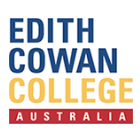Diploma of Health Science (Year 2)
Diploma of Health Science (Year 2)
This course has been Accredited by TEQSA as an AQF Level 5 – Diploma course. Diploma of Health Science (Year 2) introduces you to the biological, social and cultural elements involved in health care. It is specially designed for students who wish to major in Nursing, Nutrition, Biomedical Science, Speech…
Categories
COURSE DESCRIPTION
This course has been Accredited by TEQSA as an AQF Level 5 – Diploma course.
Diploma of Health Science (Year 2) introduces you to the biological, social and cultural elements involved in health care. It is specially designed for students who wish to major in Nursing, Nutrition, Biomedical Science, Speech Pathology, Sports Science or Psychology. Students who complete the ECC Diploma of Health Science (Year 2) will be eligible for admission to a range of Health Science degrees at ECU. The range of credits granted varies depending upon the degree you choose. A minimum of 50% pass in all units is required for progression to ECU.
Biomedical Science
Focus on how cells, organs and systems function in the human body. Their work is an important element in our understanding and treatment of human diseases
Exercise and Sports Science
Work with elite sportspeople, promote health in the community, work in corporate health or a wide range of other exciting environments
Nursing
Make significant contributions to the outcomes of patients within a diverse range of health care settings
Psychology
Give you the skills to analyse and research behaviour and explain interactions between people and their environment
Speech Pathology
Provide diagnostic assessment and management of disorders of communication and swallowing for people of all ages, from babies to the elderly
Nutrition Bioscience
Provides students with an understanding of the known nutrients and the non-nutrient substances in food, the assessment of nutritional status, nutritional needs during the lifecycle, community nutrition issues, the psychology and sociology of food habits, and current controversies in nutrition, biochemistry and human physiology
Leading to
- Bachelor of Psychology
- Bachelor of Biomedical Science
- Bachelor of Biomedical Science (Applied Chemistry)
- Bachelor of Biomedical Science (Data Science)
- Bachelor of Biomedical Science (Forensic Science)
- Bachelor of Biomedical Science (Human Biology )
- Bachelor of Biomedical Science (Human Genetics)
- Bachelor of Science (Exercise and Sports Science)
- Bachelor of Science (Nursing)
- Bachelor of Science (Speech Pathology)
- Bachelor of Health Science (Nutrition Bioscience)
REQUIREMENTS
Minimum ATAR 50, and a pass/C grade in English, or
Minimum 50% in 4 Year 12 General subjects (excluding English), and a pass/C in Year 12 English, or
Certificate IV
Entry requirements vary from country to country.
English Language Requirements:
IELTS (Academic) Score: 5.5 with no band less than 5.0; TOEFL iBT score: 60; Pearson Test of English (Academic): 42 with no score less than 36; Duolingo (selected countries only): 95; Phoenix English Proficiency Test (iPEPT): B2 (no component); IGCSE, GCSE or GCE- O levels: Grade C or Grade 4; GCE – A levels: Grade E in English Language, English Literature or English Language and Literature
EDUCATIONAL INSTITUTION
Edith Cowan College (formerly known as PIBT) is the leading pathway option into Edith Cowan University (ECU) and provides high quality courses in an environment which encourages students to achieve excellence in their studies. Edith Cowan College (ECC) is located on both the Mt Lawley and Joondalup campuses of ECU in Perth, Western Australia and offers pre-university (foundation) and university (Diploma) pathway courses in Business, Hotel Management, Communications and Creative Industries, Computing and Information Technology, Engineering Studies and Health Studies (including Nursing). Following successful completion of the diploma program students are eligible for entry into the second year of the respective bachelor degree at ECU. A trimester system allows students to fast-track their studies and complete most courses in eight months. ECC’s flexible entry requirements make it an accessible option for students. ECC’s supportive learning environment ensures students are well prepared to enter university with confidence. ECC also offers the Post-Graduate Qualifying Program (PQP) which is a non-award program designed to lead students into ECU’s masters degrees. The program is designed for students who already have tertiary qualifications but have not qualified for direct entry into university masters degrees in the Faculty of Business and Law.




